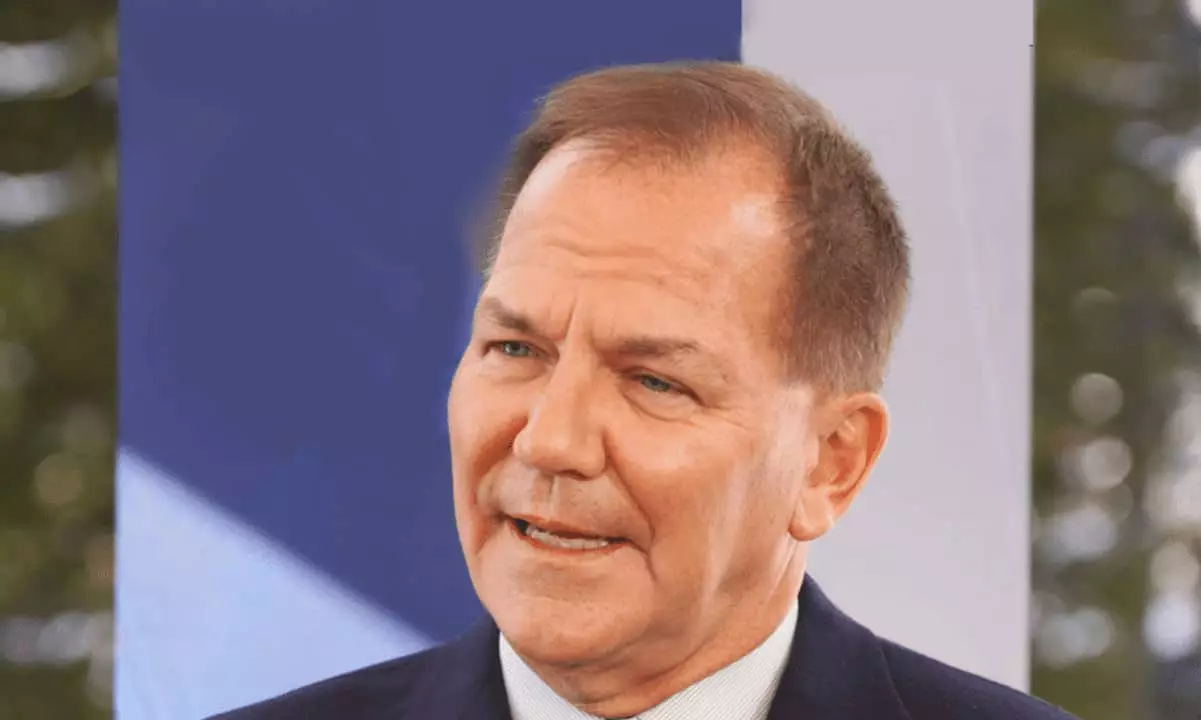Inflation has become increasingly relevant in today’s economic discourse, and the views of prominent investors often shape perceptions and strategies for navigating financial markets. Billionaire investor Paul Tudor Jones recently garnered attention during an interview with CNBC, where he articulated a compelling outlook on inflation and its implications for various asset classes. His assertion that “all roads lead to inflation” encapsulates the pervasive challenges facing economies worldwide.
During his interview aired on October 22, Jones emphasized his bullish stance on gold and Bitcoin, categorizing these commodities as significantly “under-owned.” He further delineated his investment portfolio, which he describes as encompassing a mix of gold, Bitcoin, commodities, and Nasdaq stocks, while notably excluding fixed-income assets. Such a strategy reflects a profound skepticism towards traditional investments, particularly bonds, which are often perceived as a safe haven during times of uncertainty.
Bitcoin, in particular, has been at the heart of many market discussions, especially after its price surged to within 6.5% of its all-time high right before the interview. Despite facing a minor dip afterward, Bitcoin’s resilience continues to spark debate amongst prominent figures in the cryptocurrency space, including Anthony Pompliano, who jokingly downplayed the significance of Jones’ investment choices. However, the sentiment among many analysts is that Jones’ bullishness could inject considerable confidence into cryptocurrencies. As the PiWhales account pointed out, the inflation narrative may enhance the appeal of decentralized assets like Bitcoin, reiterating a growing trend towards alternative investments in turbulent economic times.
Decoding the Inflation Narrative
Jones isn’t just predicting inflation; he grasps its thematic links to broader economic policies. He insists that inflation is inevitable, driven by the U.S. government’s pressing debt-to-GDP ratio, currently sitting at a staggering 120%. This ratio exemplifies a fundamental economic challenge, as it can hinder the country’s ability to respond effectively to economic disruptions. His assertion serves as a stark reminder that fiscal health is integral to sustainable economic growth — a realistic perspective that contrasts sharply with the more optimistic declarations made by institutions like the International Monetary Fund (IMF).
The IMF’s recent World Economic Outlook predicted the inflation struggle was largely conquered, a proclamation that, while hopeful, diverges from everyday realities for average consumers. Jones’ perspective aligns more closely with the lived experiences of individuals facing rising fuel, food, energy, and utility costs. This tragic dissonance between institutional assessments and grassroots realities raises pertinent questions about economic policymaking and its efficacy.
The implications of excessive national debt cannot be overstated. With the U.S. national debt looming at an alarming $35.7 trillion and escalating at an unprecedented rate, the risk of falling into a cycle that can threaten long-term economic stability is palpable. A high debt-to-GDP ratio predisposes a nation to increased risk of default, rising interest rates, and hampered economic growth. When coupled with inflation, these factors create a perfect storm that could result in diminished investor confidence, heightened economic insecurity, and potentially severe repercussions for the average citizen.
Jones’ evaluation of monetary policy is predicated on the necessity of a dovish approach to manage inflation delicately without imposing excessive burdens on citizens. The complexities of stabilizing the economy demand a nuanced understanding of debt management, inflation control, and consumer protection, highlighting how intertwined these elements truly are.
Paul Tudor Jones’ candid insights into inflation, investment strategies, and economic realities reveal the pressing challenges that lie ahead. As global economies attempt to emerge from the shadow of the pandemic, the balancing act between managing debt, controlling inflation, and ensuring sustainable growth remains paramount. Investors would do well to heed Jones’ warnings and reassess their portfolios against the backdrop of a changing economic landscape. Whether through traditional commodities like gold or emerging assets like Bitcoin, adapting investment strategies in light of inflation could be pivotal for securing financial stability in tumultuous times.

